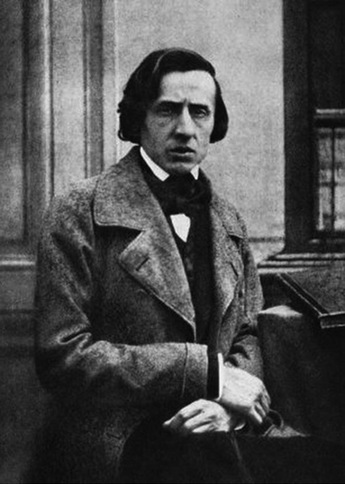Chopin's future is in Chinese hands
|
|
|
Frederic Chopin |
This year marks the 200th anniversary of the birth of Frederic Chopin (1810-1849). Music lovers around the world are paying tribute to one of the greatest composers of romantic music with hundreds of events organized throughout the year. Beijing Poly Forbidden City Theater Management will run Chopin Cycle, a series of Chopin concerts in 15 concert halls throughout China, from this weekend until November.
"The music and commemoration of Chopin is not limited to just Poland. Here in China a great many people appreciate and play his music," says Zhu Jing, program director of the Forbidden City Concert Hall.
The 70-year-old Israeli pianist Arie Vardi will kick off Chopin Cycle with recitals at Wuhan Qintai Concert Hall on Friday, Henan Arts Center on Saturday and Beijing's Forbidden City Concert Hall on Sunday evening. The maestro will play a selection of Chopin's Mazurkas, Polonaises and Waltzes.
"Mazurkas are the soul of Chopin's music," Vardi said on Tuesday afternoon in Beijing. "It is the musical form that best reflects the characteristics of Chopin's music. It's so personal, so national but so universal as well."
"I love Chopin because he is the most personal composer but his music leaves every player so much freedom to interpret. Whenever I sit to play the piano I feel it is my world, I am speaking of my own emotions."
Vardi did not start playing piano professionally until the age of 15, but soon won the Chopin Competition in Warsaw and received international acclaim as one of Israeli's foremost pianists. He then performed with the Israel Philharmonic Orchestra, with Zubin Mehta, and held numerous concerts in Europe and the United States.
Now, aside from touring as a soloist, Vardi has been a jury member at many leading international piano competitions and teaches in Tel Aviv and Hanover.
His students include many of today's leading pianists and among them quite a few are Chinese talents such as Li Yundi and Chen Sa.
Li won first prize while Chen was fourth at the 14th Chopin International Piano Competition in Warsaw in 2000 and both won the Best Polonaise Performance Awards at that competition.
"My most brilliant students are Chinese and I'm proud of it. They have some secrets or some mystery about playing Chopin. They feel Chopin as naturally as though they were born in Poland. The German tradition of playing piano is very disciplined and not the Chopin style, and Chinese students do very well," Vardi said.
In 1994 he served on the jury for a junior piano competition in China, in which Chen won first prize.
"I was amazed, the girl was incredible. I thought it would be great if one day I had a pupil like her, or if one day I could conduct a concert and she was the soloist. I did not expect that years later she really would become my student in Hanover," Vardi said.
"I always ask myself why are Chinese youth so good and the answer is a combination. First they are very talented and artistically good. Second, they are motivated by parents and society. Then, they are not talented in the mind but in the fingers. Chinese people are good at craftsmanship, using their hands. Last, they have a group of excellent teachers," the pianist said.
Though some people criticize the parental ambition of their children, Vardi has his own view.
"I can fully understand it and it's a problem all the time and everywhere," Vardi said, giving examples of great Jewish musicians such as the violinists Igor Oistrakh, Jascha Heifetz, pianist Artur Rubinstein and conductor Daniel Barenhoim.
"They were all born in common or poor families in small European cities, suffered during childhood and their (parents) wanted them to live better lives in big cities and bring glory to the family. That's the motivation."
"Whatever it took and they paid, they became great musicians and have contributed great music to the world."
Following Vardi in the Chopin Cycle later this year are Israeli pianists Dorel Golan, Gil Shohat and Alon Goldstein, and the Ukrainian pianist Victor Stanislavsky.
 0
0 







